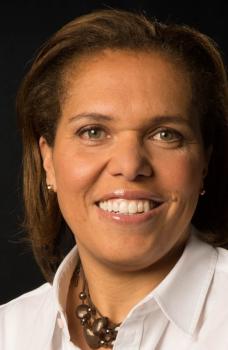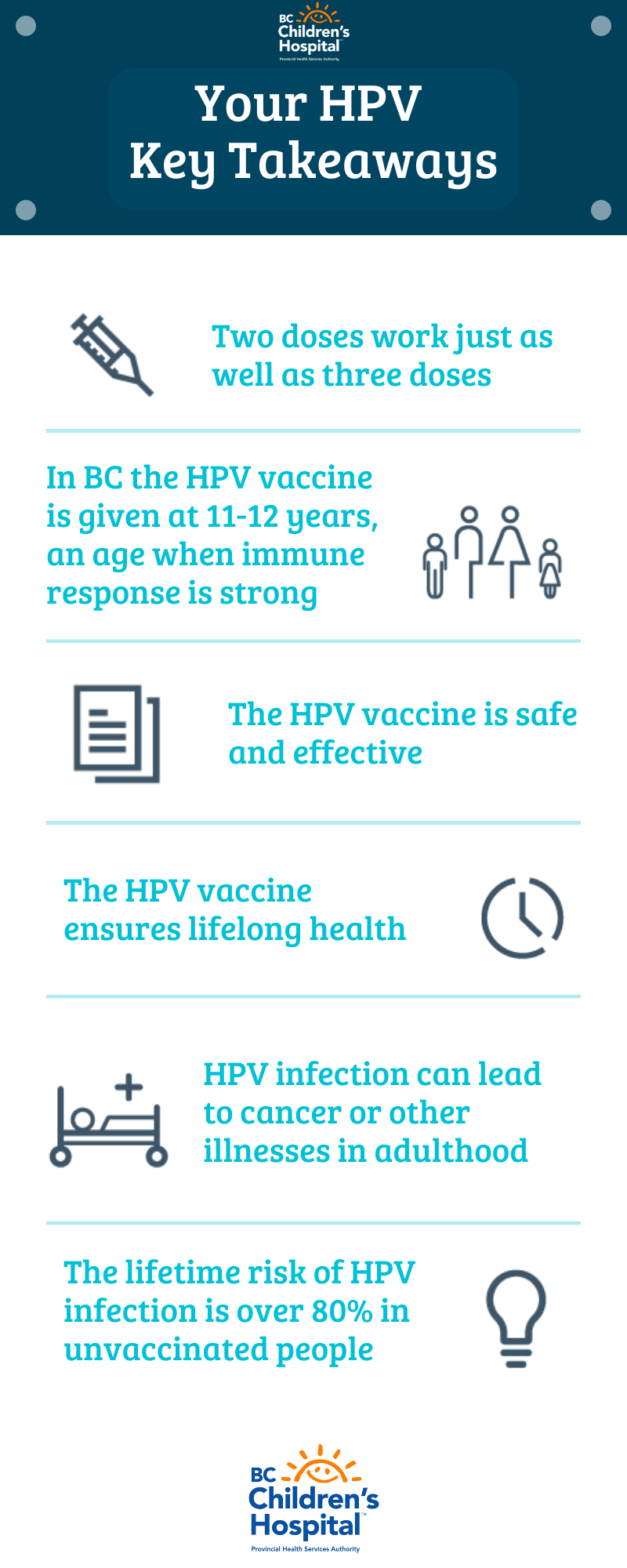
Sometimes less is more, or at least the same. Researchers at BC Children’s Hospital, BC Women's Hospital, and the University of British Columbia recently announced findings in support of the World Health Organization’s recommendation for two-dose HPV vaccine schedules in children.
Many countries have already adopted a two-dose HPV vaccination schedule instead of the original three-dose schedule, based on Canadian research showing that two doses are just as effective as three. This earlier research measured results at three-year follow-ups.
BC Children’s Hospital conducts long-term HPV vaccine efficacy research

Now, first-of-its-kind long-term research by Dr. Gina Ogilvie and her team at BC Children’s Hospital, BC Women's Hospital, and the UBC Faculty of Medicine compared the immune responses in girls aged 9-13 who received either two or three doses of the HPV vaccine with the immune responses of women aged 16-26 who received three doses of the HPV vaccine. Immune responses were measured at various time points after administration of the first dose, with the last data collection occurring 10 years after initial vaccination.
"What we now see is that up to 10 years out, two doses [of the HPV vaccine] in girls is comparable to three doses in women, and what we have seen in those three-dose women is protection against precursors of cervical cancer," said Robine Donken, a UBC postdoctoral fellow with the Ogilvie research team and first author in the immunogenicity study.
"We can now say that the two-dose schedule is really effective, and we assume it protects ... as it would have done on a three-dose schedule."
The HPV vaccine has reduced the occurrence of HPV infection since its introduction in Canada in 2006. The Ogilvie team also recently published their evaluation of the British Columbia school-based HPV vaccination program, confirming that BC women who had received the HPV vaccine in grade 6 showed a 57 per cent reduction in the incidence of cervical pre-cancerous lesions compared to those who were unvaccinated.
Yet even though safety of the HPV vaccine has been confirmed time and time again, uptake of the vaccine in Canadian youth ranges from only 56-70 per cent — well below the government’s target of 90 per cent by the year 2025. For comparison, the uptake of other vaccines, such as the MMR (measles, mumps, and rubella) vaccine, ranges from 80-90 per cent. Since there are still around 4,000 new cases of HPV-related cancer in Canada every year, more needs to be done to protect Canadians from HPV.
Protection from HPV begins in adolescence

While two doses are already provided for grade 6 students in British Columbia, three doses are still given to those over the age of 15 and to those with weakened immune systems.
“I think that the great benefit of going from a three- to a two-dose [schedule] is definitely that it’s more convenient for adolescents and their parents, while giving comparable protection up to at least 10 years post-vaccination. In the school-based program, as of 2014 adolescents only need to receive two doses instead of the three doses that were required before. And from a public health perspective, by not needing to give that third dose, that saves a lot of money,” said Donken.
An unvaccinated individual’s chance of becoming infected with human papillomavirus (HPV) is very high, with an 80 per cent lifetime risk. While most infected individuals will not show any symptoms and the infection will clear on its own, HPV infection that persists can lead to various types of cancer, like cervical cancer, as well as other serious illnesses in adulthood.





